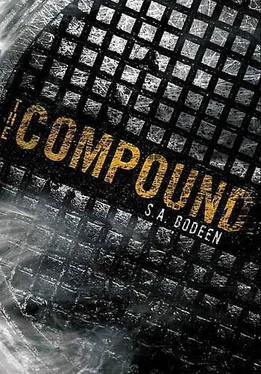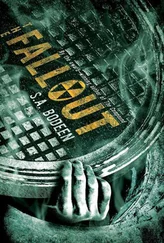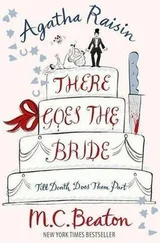They got married, built a thirty-room estate overlooking Puget Sound, immediately adopted one-year-old Lexie from the Yanakakis Home for Children, and then had three kids the regular way. They lived the sweet life. Happily ever after and all that crap.
That’s the Rex Yanakakis the world knew.
What Rex Yanakakis did I know?
My dad was never one of those dads you could ask for a quarter if you saw a gumball machine. Instead he had one of those black American Express cards not available to the general public. Gumball machines didn’t have slots for those.
My dad was never one of those dads who raked piles of leaves to jump in with their kids. He worked long hours most of the year, so his idea of quality time was a two-week trip twice a year, usually to somewhere exotic like Tahiti or Morocco. And there was usually another reason for going, like the time he “acquired” the software company in Rabat, or bought an uninhabited, uncharted island in the South Pacific. Our “vacations” always included some kind of business transaction.
Except for that last trip, a camping trip, the one that ended with us coming here, to the Compound. We just happened to be on Dad’s three thousand acres in eastern Washington when our nation was attacked.
Even though Dad always told us the Compound could be reached by helicopter from our estate in under that ubiquitous forty minutes, I thought that was cutting it a bit close. I remember thinking how lucky we were to be at the cabin with our RV, so close to the Compound we had heard so much about right as the nightmare began.
But we were not lucky that we were away from the cabin, a ways away, when we discovered Terese had smuggled a stray kitten into the RV.
We were not lucky when Eddy’s allergies flared up.
Not lucky that his medicine was back at the cabin.
Not lucky that Gram had to drive back to the cabin in the Range Rover to get the medicine while the rest of us went to bed.
Not lucky Eddy climbed in the back of the SUV without anyone knowing.
And definitely not lucky that some country decided that moment was the right one to launch a nuclear attack, sending us careening across the flat landscape in the RV.
The rest of it comes to me in a series of black-and-white flashes:
Dad slamming on the brakes. Grabbing Terese .
Dad shouting at the rest of us. Get out! Run! Run! Run!
Following behind him in the dark. Stumbling over rocks in the middle of nowhere. Mom running, too, helping us up .
The night. So dark. Chilly. My family simply manic shadows alongside me .
Stopping at a hole in the ground. Not a hole. A hatch .
Dad pushing us, making us climb down. Dad staying up on top .
Me screaming for Cocoa. Dad promising to find her. Me going with the others. Down into a room. Stairs. So many stairs .
Descending. Descending. Descending .
To the silver door. A gaping mouth wanting to swallow us .
Waiting. Waiting. Precious minutes ticking .
Too much time .
Mom leading us through the silver door .
Dad returning .
Me screaming .
Silver door closing. Loud. Reverberating in my head .
Gram gone .
Eddy gone .
World? Gone .
That wasn’t all of it. My mind censored out the worst part. The part where I was selfish. The part where I would do anything to get what I wanted. Even if it meant leaving my brother out of our only hope for survival. Our sanctuary.
My dad was the type of dad who spent a billion dollars on that sanctuary so his family could survive a nuclear attack. That should have been enough for most people.
Problem was I had never been most kind of people.
I would have rather had a dad with change jingling in his pocket; one who would have spent the last forty minutes of the world raking leaves for his kids to jump in, so that they perished in one loud, bright instant, giggles still bubbling up from their bellies, never suspecting a thing.
Yeah, well. Tough luck, rich boy.
Chapter SIX

MY DREAMS THAT NIGHT, LIKE SO MANY OTHER NIGHTS, WERE of food. Cheeseburgers, loaded with bacon and mayo and ketchup. Seasoned curly fries, greasy and dripping in mustard. Milk shakes, thick slices of strawberry cheesecake, hot fudge sundaes.
When I woke up, my pillow was wet with drool and my stomach growled. I hated waking up like that, immediately reminded of our pathetic food situation.
It hadn’t always been bad. In the beginning we had plenty to eat. An enormous open room near the hydroponics housed the poultry and livestock. Without Eddy to do the job, caring for them fell to me. We had five Holsteins, all with suckling calves. With their soft fur, slippery noses, and sandpaper tongues, the calves were so loveable that it helped me not miss Cocoa so much.
Their pen was a smaller version of a corral you’d see on a ranch. Smelled like one as well. Every day, wishing I could worm my way out of it, I grudgingly held my breath as I scooped up their manure and hauled it to one of the incinerators. I gave the animals water, and then carried grain by bucketfuls to their trough. The trough sat near a water tank that I filled with a hose from a nearby spigot.
The chickens were not as fun as the cows. I sprinkled their corn, brought clean water, and rushed out of the henhouse. I hated the putrid stench of chicken crap. Most days I gathered eggs. Those were a treat, especially when Mom made them into cheese omelets.
One entire room of the warehouse was devoted to feed for the animals. Should it dwindle, Dad explained, we would butcher the cows and make do without milk and the cheese and butter that Mom made. Even though it would mean less shoveling for me, I chose not to think about that day, counting on the feed to last.
Between the dairy and poultry products, produce from the garden, and freezers full of meat, we ate well.
For the first seven months.
The morning it all changed started out like any other. Life had become routine, almost like we’d always lived in the Compound.
With an orange wheelbarrow, I hauled a new bag of feed out of the storeroom and poured it into the cows’ trough. They dug in with gusto as usual, the calves nursing as their mothers chewed, their crunching loud. The chickens were ecstatic when I fed them, their ruffling feathers and cackling driving me nuts.
The next day I went to feed them. I was puzzled. Neither the chickens nor cows touched the food I gave them. The cows dripped saliva while the calves suckled. I went to get Dad.
He wasn’t that up on hanging out with the livestock. His nose wrinkled the minute he walked in the room, and his eyes were glued to the ground as he took ginger steps around any dirt I might have missed when I cleaned up, even though he wore knee-high muck boots.
Dad wasn’t sure what to make of the cows’ behavior. “They probably have to adjust to this place, too. They’ll be back to normal in a day or so.”
Later, I went back to check. The cows stood there, panting and drooling. The calves lay on their sides, still.
I rested my hand on one.
The fur was still soft. But the body was stiff and cold. The calves were dead. All of them.
And it was quiet in there. Too quiet.
I realized what was missing. Cackling. Inside the henhouse, I found all the chickens, unmoving and lifeless.
I ran to get Dad, and then struggled to keep up as we raced back. By then a cow was on her side. “What the hell is wrong with you?” he hissed.
My mouth opened to defend myself, to tell him I’d done everything the way I was supposed to. I was afraid to speak.
Читать дальше













